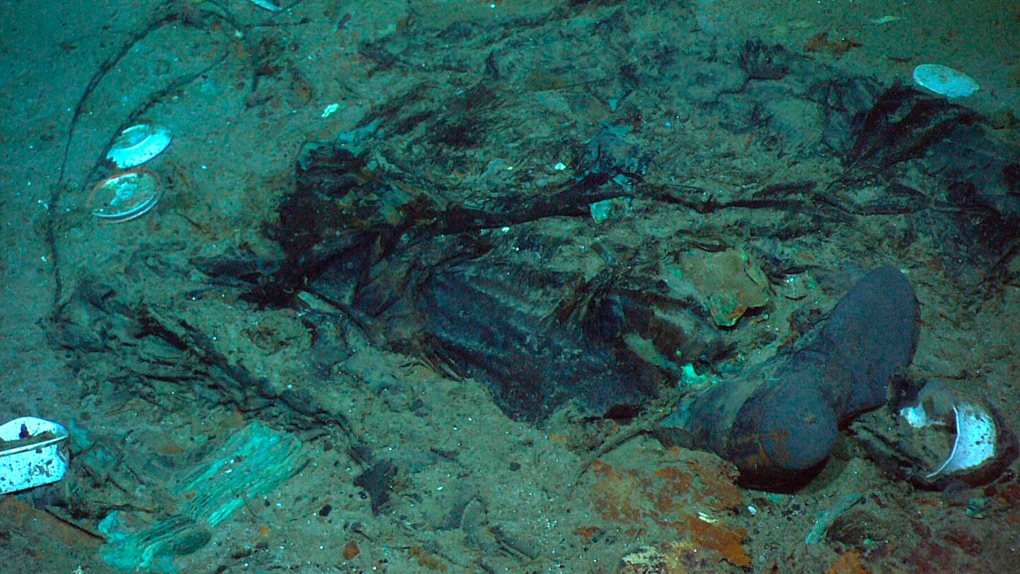
A new Titanic expedition is planned. The U.S. is fighting it, says wreck is a grave site
CTV
The U.S. government is trying to stop a planned expedition to recover items of historical interest from the sunken Titanic, citing a federal law and an international agreement that treat the shipwreck as a hallowed gravesite.
The U.S. government is trying to stop a planned expedition to recover items of historical interest from the sunken Titanic, citing a federal law and an international agreement that treat the shipwreck as a hallowed gravesite.
The expedition is being organized by RMS Titanic Inc., the Georgia-based firm that owns the salvage rights to the world's most famous shipwreck. The company exhibits artifacts that have been recovered from the wreck site at the bottom of the North Atlantic, from silverware to a piece of the Titanic's hull.
The government's challenge comes more than two months after the Titan submersible imploded near the sunken ocean liner, killing five people. But this legal fight has nothing to do with the June tragedy, which involved a different company and an unconventionally designed vessel.
The battle in the U.S. District Court in Norfolk, Virginia, which oversees Titanic salvage matters, hinges instead on federal law and a pact with Great Britain to treat the sunken Titanic as a memorial to the more than 1,500 people who died. The ship hit an iceberg and sank in 1912.
The U.S. argues that entering the Titanic's severed hull -- or physically altering or disturbing the wreck -- is regulated by federal law and its agreement with Britain. Among the government's concerns is the possible disturbance of artifacts and any human remains that may still exist.
"RMST is not free to disregard this validly enacted federal law, yet that is its stated intent," U.S. lawyers argued in court documents filed Friday. They added that the shipwreck "will be deprived of the protections Congress granted it."
RMST's expedition is tentatively planned for May 2024, according to a report it filed with the court in June.
